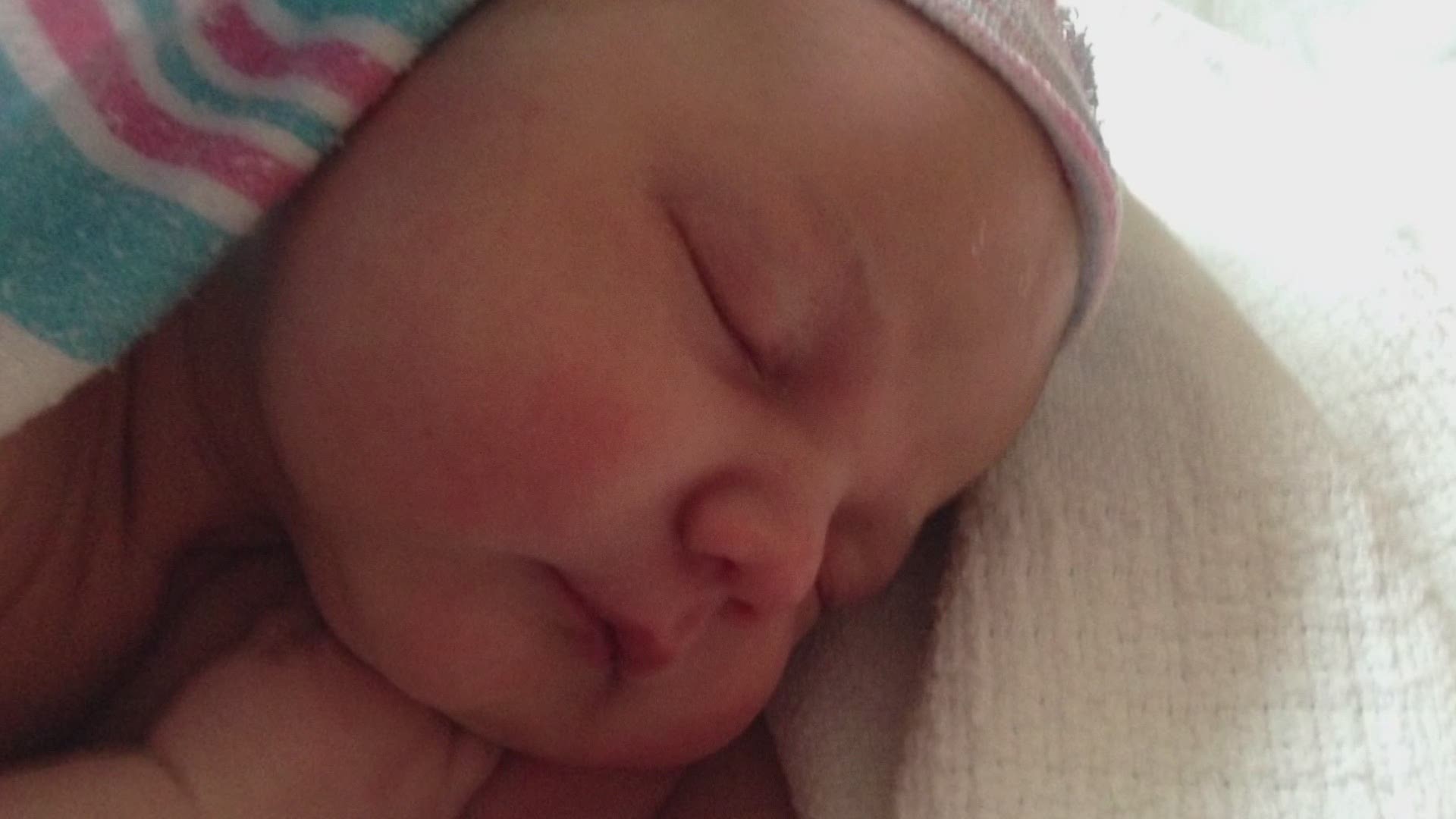PORTLAND, Maine — According to the U.S. Centers for Disease Control (CDC), Cytomegalovirus, or CMV, is a virus that more than half of adults in the U.S. will get by the age of 40.
CMV is passed through bodily fluids and most who get it have no symptoms. But if a woman gets it while pregnant, their baby could be at risk for serious health problems.
Surprisingly, however, few women in Maine and across the country are warned about this infection.
Laura Sweet's daughter, Jane, was born in November of 2014.
"I had a completely normal pregnancy, full-term, she appeared totally healthy at birth," Sweet said.
But Jane failed her newborn hearing screening. After nearly a year of seeing different specialists, her daughter was finally diagnosed with CMV.
CMV is a common virus that often circulates in daycares. It can present like the common cold or flu, or present no symptoms at all. But it can lead to severe complications to an unborn child when the mother is newly infected while pregnant.
Sweet had been advised to refrain from alcohol, certain foods, and handling kitty litter, but was never told about CMV by her doctor. The virus is often spread by saliva and urine. Sweet's young son was in full-time daycare at the time.
"There are really simple things I could have done had I known—like not sharing utensils with him, not sharing water bottles with him," Sweet said.
According to the CDC, CMV affects one in 200 newborns every year and about 20 percent of babies infected will develop health problems. It's the single most common infectious disease that causes brain injury, developmental disabilities, and hearing loss in children across the country.
"There is one end where kids can have it and have no symptoms, or they can have devastating neurological impacts, autism, seizures, and profound hearing loss," Dr. Andrew Tenenbaum, a pediatrician with InterMed, said.
Kelsi Gagne's pregnancy with her daughter Hayley had no complications. Her baby girl passed her newborn hearing test. But at 15 months, her daycare provider noticed Hayley wasn't responding to her name. Gagne, who is an occupational therapist, was blindsided when her daughter was diagnosed with CMV.
"That what makes me mad," Gagne said. "If there was a screening and I had a pamphlet that says CMV causes hearing loss, I would have been looking out for her hearing."
Hayley was fitted with cochlear implants later than most babies who fail their hearing tests, but she is developing normally. Now two years old, she is learning to count and loves music therapy.
Jane had her implants by her first birthday and is thriving in kindergarten.
These moms are lobbying to educate all women of childbearing age, as well as doctors in Maine, about the risks and how to prevent CMV. They also want universal screenings, testing every baby for CMV at birth, to catch those who may not have obvious signs like hearing loss.
"If babies are identified they can be monitored and if anything comes up in their lives, families know to watch out for them," Sweet said.
Sweet and Dr. Tenenbaum were members of a working group directed by state lawmakers several years ago to come up with a report and a list of recommendations to address CMV in Maine.
That included testing newborns for CMV if they do not pass their newborn hearing tests. Those recommendations will be part of legislation that is expected to be introduced this coming fall.
For information on CMV from the Maine CDC, click here.
For the latest research on universal screening for CMV, prevention, and treatments from the National CMV Foundation, click here.

